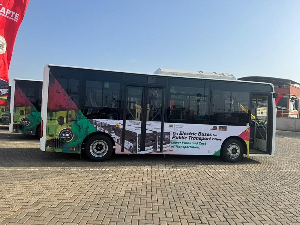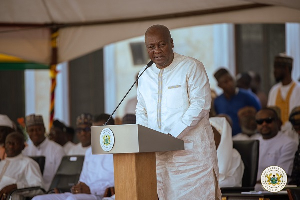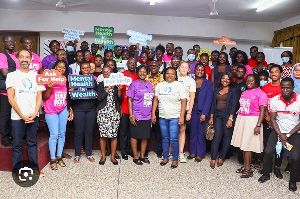In a groundbreaking step toward modernizing Ghana's public transportation system, Vice President Dr. Mahamudu Bawumia on November 27, 2024 unveiled the country’s first fleet of battery-electric buses.
This transformative initiative, which highlights Ghana's commitment to sustainable development, marks the beginning of a new era in urban mobility, with significant economic, environmental, and social benefits.
The launch, a collaborative effort between Metro Mass Transit Limited (MMTL) and the Greater Accra Passenger Transport Executive (GAPTE), introduces electric buses as a cost-effective, eco-friendly alternative to conventional transportation.
The project also aligns with Ghana’s agenda to reduce greenhouse gas (GHG) emissions and promote affordable, efficient public transport services for all.
The highlight of this initiative is its potential to significantly reduce transportation costs. Commuters can expect fare reductions of up to 40-50%. This is made possible by the lower operational costs of electric buses compared to fossil fuel-powered vehicles.
This milestone promises to ease the financial burden on Ghanaians while ensuring greater accessibility to essential services such as education, healthcare, and employment.
Vice President Dr. Mahamudu Bawumia’s Vision for a Sustainable Ghana Speaking at the launch event, Dr. Bawumia emphasized the government’s commitment to leveraging innovative solutions to drive development.
"This initiative is not just about buses; it’s about creating a sustainable and inclusive future for all Ghanaians. By reducing transport costs and emissions, we are making a bold statement that Ghana is ready to lead in the transition to cleaner and more efficient urban mobility," he said.
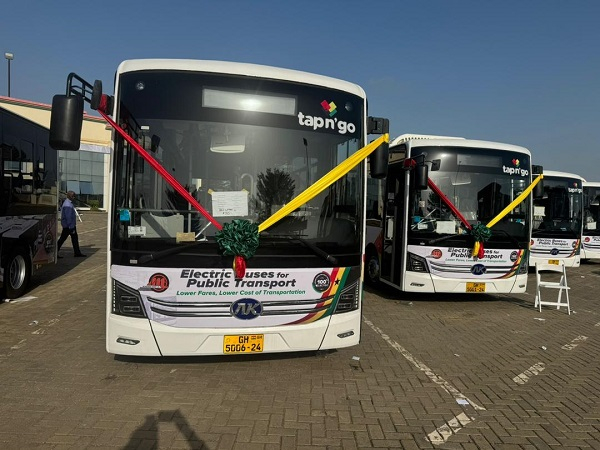
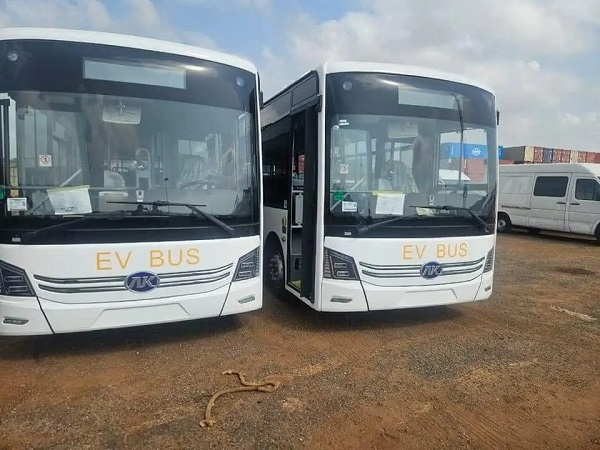
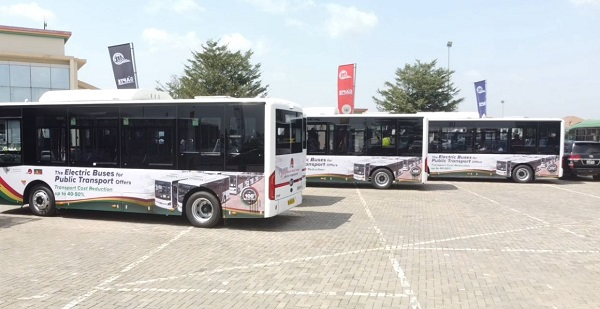
Dr. Bawumia mobbed as he arrives for the launch of electric buses for public transport.
— GhanaWeb (@TheGhanaWeb) November 27, 2024
#ghanaweb #ghanawebtv pic.twitter.com/hXF2WSRb5c
Key features and benefits of the EV buses on public transport
• Lower Transport Costs: Fares reduced by up to 40 - 50%, improves affordability for commuters.
• Job Creation: New opportunities in vehicle maintenance, charging infrastructure management, and operations will generate jobs.
Environmental Gains
• Up to 70% reduction in GHG emissions, contributing to improved air quality in urban centers.
• Decreased noise pollution, enhancing the overall urban experience.
Social Inclusion
• Buses are equipped with wider doors and low-floor entry ramps to ensure easy accessibility.
• Reliable and timely services aimed at reducing travel stress, delays and increasing convenience for all commuters.
Operational Framework of the EV Buses
The electric buses will be operated collaboratively by MMTL and GAPTE, with GAPTE managing charging infrastructure and route optimization. During the pilot phase, operations will focus on routes within the Adenta Municipality, with services expanding to other urban areas after performance evaluations. The GAPTE Adenta Terminal will serve as the operational hub for the project, supported by strategically located charging ports at GAPTE’s Head Office in Adenta Aviation.
The success of this initiative is built on the collaboration of key stakeholders:
• Vice President Dr. Mahamudu Bawumia: Providing strategic leadership and championing innovative transport solutions.
• Metro Mass Transit Limited (MMTL): Ensuring seamless fleet management and integration into the national transport network.
• GAPTE (Ayalolo): Managing terminals, charging stations, and daily operations.
• Ministry of Local Government and the Adenta Municipality: Supporting community engagement and local route planning.
Next Steps
1. Pilot Operations: The initial phase will focus on Adenta Municipality, allowing for testing and refinement of the system.
2. Performance Monitoring: Stakeholders will evaluate operational efficiency, commuter satisfaction, and environmental impact.
3. Expansion Plans: Services will scale up to other urban areas, fostering nationwide adoption of electric buses.
4. Community Engagement: Outreach programs and workshops will be carried out to ensure the active involvement of local communities and private sector partners.
This initiative reinforces Ghana’s role as a leader in sustainable urban mobility in Africa. By addressing the dual challenges of affordability and environmental impact, the introduction of electric buses sets a new benchmark for public transport systems across the continent.





